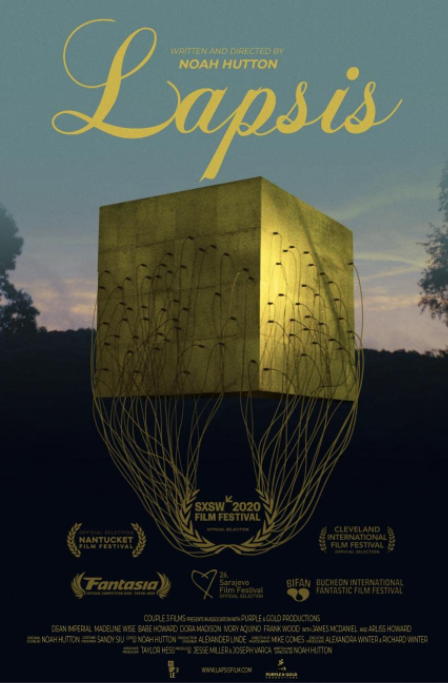
In our COVID-ridden real world, a near-future science fiction movie in which codes and AI are villains is something of relief, in addition to being unsettling, especially if it's well done, which Lapsis very much is.
A new computer system, QUANTUM, is revolutionizing, or promising to revolutionize, our civilization. In order for it to work best, remote areas have to be connected to the network by CABLRs, i.e., independent contractors who lay the cable. They have competition, though, from robot cablrs, also working for the same company. Their purpose is apparently both to keep the human cablrs on their toes as well as laying their own amount of cable.
Ray, desperate for money to pay for his kid brother's medical treatment (he has "omnia," a chronic fatigue syndrome) takes a job as a cablr. Dean Imperial, whom I've never seen before, plays Ray like a minor character from The Sopranos struggling for his day in the sun, or, in this case, the dense forest. (I'd say The Sopranos is about the best series ever to have been on television, so that's high praise.) The forest work is grueling, edgy, even dangerous, and Ray's compensation as an independent contractor is tenuous at best -- hence, Heart of Darkness meet Uber.
Along the way, in and out of the forest, the movie takes shots not only at high-tech, but medical facilities and health-food stores. Ray has some difficulty understanding what's going on a first, but gets almost all of it in the end -- a journey which is actually reassuring to the viewer, who may well be taking the same cognitive trip. It was good to see James McDaniel (NYPD Blue) and Dora Madison (Friday Night Lights) on the screen, and the music was good, too.
That was by Noah Hutton, who also wrote and directed this movie. He's the grandson of Jim Hutton and the son of Tim Hutton (and Debra Winger) and in this his first movie continues the fine tradition of his family.

No comments:
Post a Comment